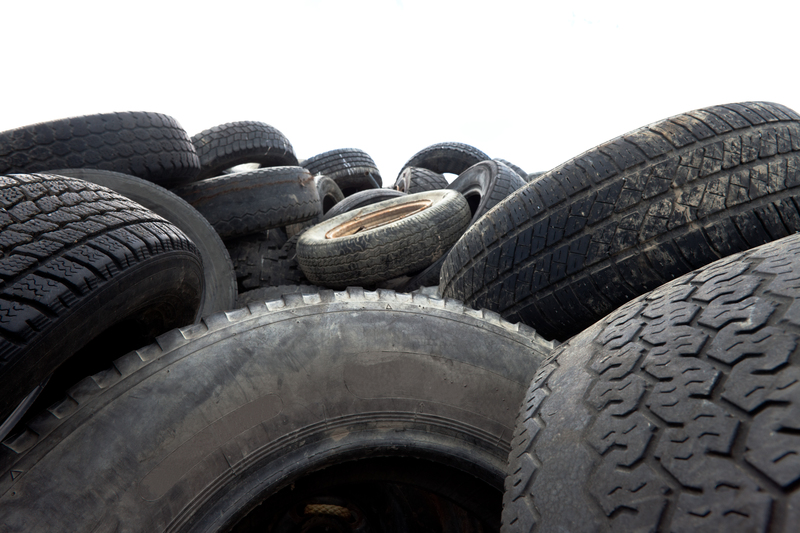Posted on 08/12/2024
How We Recycle Plastic
Recycling plastic has become an increasingly essential practice in our daily lives, driven by the need to conserve the environment and manage plastic waste responsibly. This article provides a comprehensive guide on how we recycle plastic, the benefits and challenges of recycling, along with practical tips, key takeaways, and a thoughtful conclusion.
The Importance of Recycling Plastic
Plastic recycling is crucial as it helps reduce the amount of waste landfills, lowers greenhouse gas emissions, and conserves natural resources. Recycling plastic also minimizes pollution, which is vital for protecting marine life and ecosystems. Understanding the recycling process enables us to be more effective in our efforts to reduce our environmental footprint.

The Plastic Recycling Process
The plastic recycling process involves several crucial stages, from collection to manufacturing new products. Here's a detailed look at each step:
1. Collection
The first step in the recycling process is the collection of plastic waste. This is often carried out through curbside recycling programs, drop-off centers, and buy-back centers. Sorting plastic waste at the source is critical to ensure the quality of the recycled material.
2. Sorting
Collected plastics are transported to recycling facilities, where they undergo sorting based on type and color. This process can be manual or automated, using technologies like infrared sensors and air classifiers. Proper sorting ensures that different types of plastics do not mix, making the recycling process more efficient.
3. Cleaning
After sorting, the plastics are thoroughly cleaned to remove any contaminants such as food residues, labels, and adhesives. Cleaning is typically achieved through a combination of washing and chemical treatments. Clean plastics are easier to process and result in higher quality recycled products.
4. Shredding
Cleaned plastics are then shredded into small pieces or flakes. Shredding increases the surface area of the plastics, making them easier to process in subsequent steps. The shredded plastic can be melted down and reformed into new products or further processed into pellets.
5. Melting and Reshaping
The shredded plastic is melted down and reshaped into new forms. The method used depends on the type of plastic and intended final product. Common techniques include extrusion, where melted plastic is pushed through a die to create continuous shapes, and injection molding, where plastic is injected into molds to form specific items.
6. Manufacturing
The recycled plastic is then used to manufacture new products, such as bottles, textiles, automotive parts, and construction materials. The quality of the final product largely depends on the purity of the recycled plastic and the efficiency of the recycling process.
Pros and Cons of Plastic Recycling
While plastic recycling offers numerous environmental benefits, it is not without its challenges:
Pros:
- Reduces landfill waste and conserves space.
- Lowers greenhouse gas emissions by reducing the need for virgin plastic production.
- Conserves natural resources like petroleum and natural gas.
- Decreases pollution and protects marine life and ecosystems.
- Generates economic benefits and creates job opportunities in the recycling industry.
Cons:
- Recycling processes can be energy-intensive and costly.
- Contamination of plastic waste can reduce the quality of recycled products.
- Limited recycling infrastructure and facilities in certain regions.
- Some types of plastics are difficult or uneconomical to recycle.
- Downcycling, where recycled plastic is turned into lower-quality products, can limit its reuse potential.
Tips for Effective Plastic Recycling
- Clean and rinse plastic containers before recycling to remove any residue.
- Check local recycling guidelines to understand which types of plastics are accepted.
- Avoid using single-use plastics whenever possible and opt for reusable alternatives.
- Flatten plastic bottles to save space in recycling bins.
- Support products made from recycled plastic to promote the demand for recycled materials.

Key Takeaways
- Recycling plastic is essential for environmental conservation and reducing pollution.
- The recycling process involves collection, sorting, cleaning, shredding, melting, and reshaping.
- Despite its benefits, plastic recycling also faces challenges like contamination and limited infrastructure.
- Effective recycling requires participation from individuals and communities.
- Simple actions, like cleaning plastics and supporting recycled products, can make a significant difference.
Conclusion
Recycling plastic is a vital practice for achieving sustainable waste management and environmental protection. By understanding the recycling process and embracing responsible plastic use, we can greatly mitigate the negative impact of plastic waste. While there are challenges associated with plastic recycling, the collective efforts of individuals, communities, and industries play a crucial role in making recycling a success. By adopting best practices and supporting recycled products, we contribute to a cleaner, healthier planet for future generations.
Latest Posts
Tips for Proper Disposal of Regular Waste
Garbage Cleanup Bags - Efficient Skip Substitute

































 Get a Quote
Get a Quote